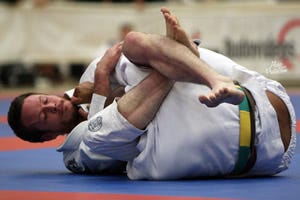Do you know this choke?
I’ve been asked questions like this thousands of times over the years. A student will ask their instructor if they know a move. Even within my jiu jitsu experience, this question can mean multiple things.
Most of the time these days, they want to know whether I can help them understand the move. If I know how to do a technique, it means I can probably explain how they can make it work for them.
It’s not just being able to execute the technique on other people, but instead my ability to break it down for others that makes me an instructor. It’s the understanding that no two bodies are exactly the same, but there are nevertheless useful underlying principles students can use to determine good technique.
Know what I mean?
This sort of understanding ladder is classified by psychologists into three neat categories of types of knowledge. Psychologists out there reading this, please do chime in on this in the comments section, and for everyone, just keep in mind that the comments here are often more interesting than whatever I have to say:
When you use declarative knowledge, you know something in the sense that you’ve seen this movie before. With our choke example, maybe you know a triangle choke because you read my tutorial on triangles here on Substack. You’re familiar with the basic mechanics and how the choke works, and maybe you can even explain to someone else how to do it.
You might say that you know how to do a triangle choke, but then you might never be able to execute one against a live opponent. That brings up a second type of knowing called procedural knowledge. Here, you not only understand the theoretical mechanics of the move, but you can actually execute it on a live partner.
If you’re practicing that triangle choke for the first time in class, that might mean getting your partner to tap due to the constriction of blood flow to the brain. That’s a level of this sort of knowing, but practicing on a willing partner is one thing—what about hitting the move live? That’s a deeper level of procedural knowledge.
A third level of knowledge—and the main reason a live jiu jitsu instructor still has tremendous value—is called conditional knowledge. Good purple belt students have this in droves, and they prove it over and over again by ensnaring people in traps, and by adjusting as-needed in real time.
An instructor has this as well, but it needs to go beyond this too. A student with a completely different body type needs to be coached through alternative ways to finish a choke, or perhaps there are tweaks to a move you only know if you’ve taught a similar lesson a dozen times over the years.
Knowing several dozen details about each move is awesome, but being able to sort through all that and determine which piece of advice is the right one? That’s something that takes decades to develop. That requires both deep and wide thinking for many years.
Have you ever thought explicitly about different types of knowledge? When I started writing today, I was pretty sure I was going to talk about the allegory of the cave and the illusion of reality, but this psychological framework really resonated. There’s a ton more to say about knowledge and how casual everyone uses the word “know”—if you want to read more today, this might float your goat:
The Unknown Knowns
Donald Rumsfeld, both the youngest and the oldest US secretary of defense, famously laid out a framework for thinking and decision-making.







This is a lot like how I *know* what each OpenAI model is theoretically capable of (and their naming convention) while people who apply them in practice, like you, will have the procedural knowledge of actually using them in real-world scenarios. Or something.
Definitely fits my idea of what BJJ black belt is, at least instructor wise. Most browns and likely purples can run a class. And teach techniques well. But an experienced black belt instructor is going to be able to teach a technique and provide advice on different body styles, for the submitter and the submittee.